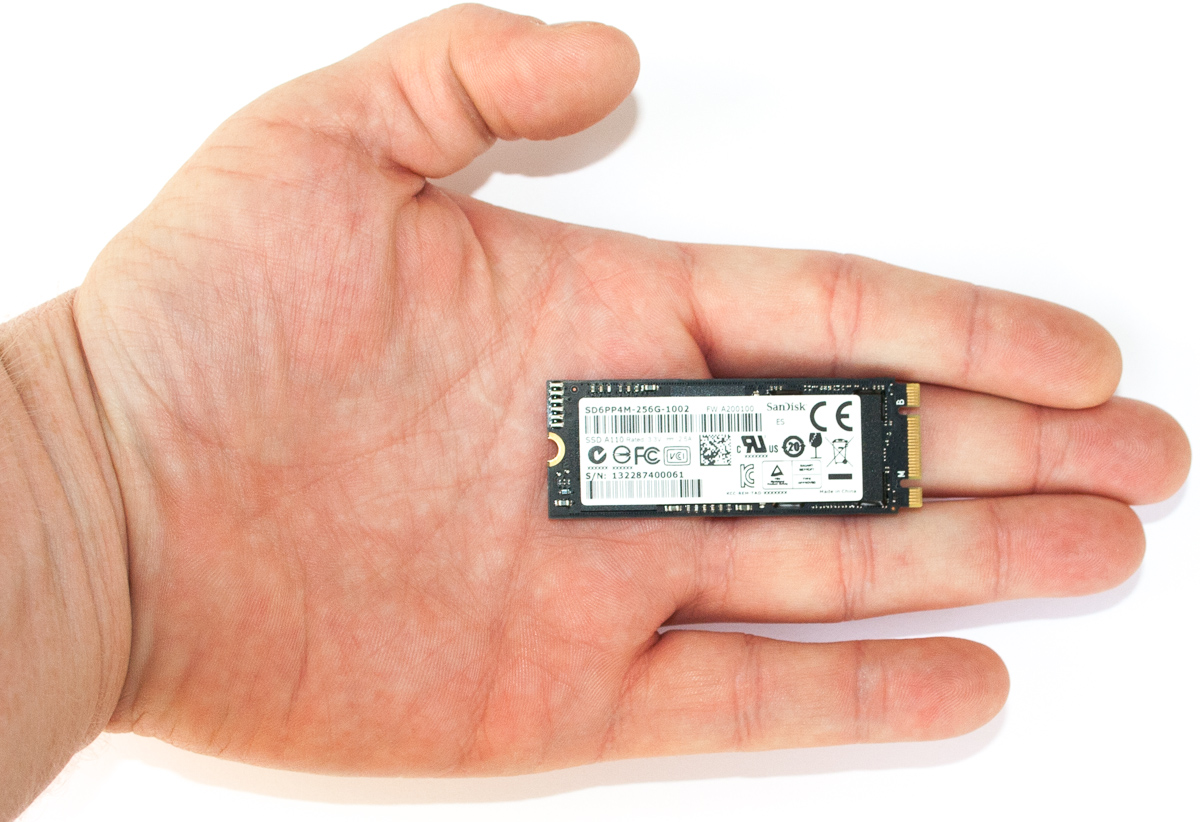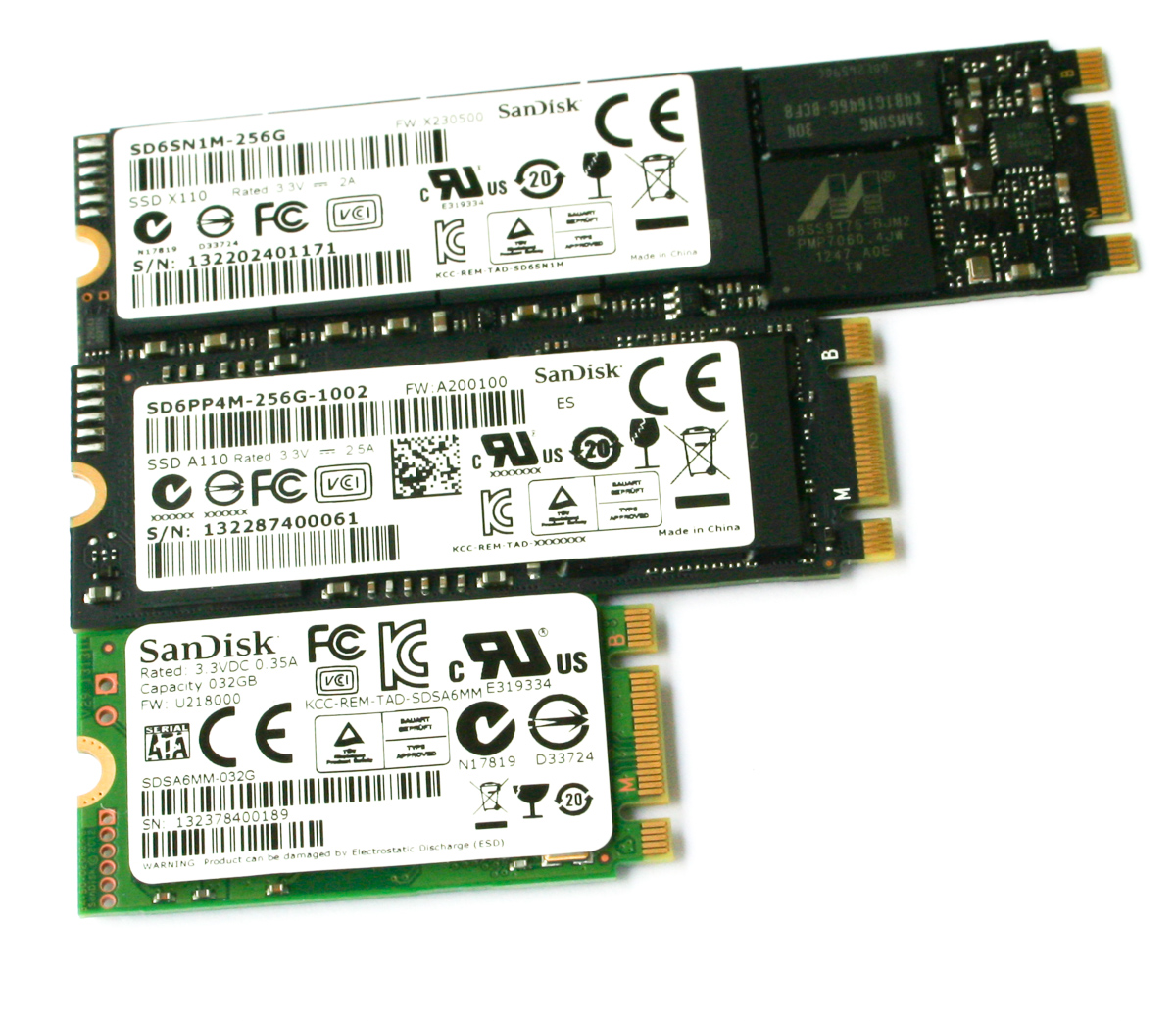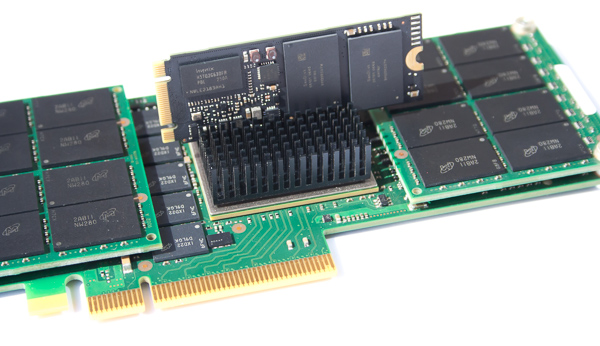SanDisk A110 PCIe SSD: Armed With The New M.2 Edge Connector
We got our hands on an early sample of SanDisk's A110 SSD. So what? Big deal? Not a chance. This thing is PCI Express-attached and sports the new M.2 edge connector. Read on to learn more about the next generation of solid-state storage connectivity.
PCI Express-Attached M.2: Ready For Prime Time
SanDisk's A110 is the first SSD in our lab based on the M.2 form factor. It's an intriguing piece of technology. Alleviating SATA's 6 Gb/s bottleneck allows the native PCIe controller to achieve impressive sequential performance, though random throughput is biased toward low queue depth environments. That's alright by us, though. In the mobile devices designed to accommodate SSDs like the A110, this level of performance is still downright phenomenal.
M.2 is picking up steam, and alongside it, storage vendors are starting to talk about a feature called DevSleep, which facilitates ultra-low idle power consumption at the expense of some extra latency as you resume. But this is a part of the SATA specification; you can't get it from a PCI Express-based drive with an M.2 connector. So naturally, the A110 doesn't support DevSleep.
We're sure that PCI Express-based SSDs, and then PCI Express-based SSDs with NVMe support are going to receive the most attention from enthusiasts. However, those SATA-based models will likely ship in the highest volumes.
On the desktop, power users can get as much storage performance as they want by slapping SSDs together in RAID. But that's simply not an option in most mobile devices. So, in some situations, SATA will be deemed plenty sufficient. In others, solutions like the A110 will enable more performance in less space. What's cool is that drives for both applications can be built using a number of form factors and the M.2 connector.
SanDisk's A110 represents growing number of options in the storage world, and we like that. Particularly now, as one high-performance SSD after another slams into the same SATA-imposed ceiling, it's exciting for a storage enthusiast like myself to get an early look at the edge connector and controller hardware that'll help change the status quo, knowing all along that there's an interface (NVMe) coming as well that'll complete the picture and further unlock the potential of solid-state storage.
Until that happens, though, we have SATA- and PCIe-based SSDs with M.2 connectors and AHCI compatibility already in production. It's only a matter of time before Haswell-based Ultrabooks start showing up in greater numbers with their own little M.2 slots. And it's good to know they'll be nice and fast, isn't it?
Get Tom's Hardware's best news and in-depth reviews, straight to your inbox.
Current page: PCI Express-Attached M.2: Ready For Prime Time
Prev Page Results: Power Consumption-
Mike Friesen Awesome new stuff. Can't wait to see if this drive actually uses the full potential of the M2, and if Samsung or OCZ can one-up them.Reply -
cryan Reply11487924 said:Awesome new stuff. Can't wait to see if this drive actually uses the full potential of the M2, and if Samsung or OCZ can one-up them.
Samsung actually has some pretty awesome M.2 PCIe action going on. We're trying to get our hands on everything, so stay tuned.
Regards,
Christopher Ryan
-
It will be nice to see vendors implement the NVMe connectors in the desktop mobo's, which in turn will redefine case design, as less storage space will be required for storage. I am aware that the initial intent is to direct these at the mobile market, but desktops can benefit as well.Reply
-
cryan Reply11488018 said:It will be nice to see vendors implement the NVMe connectors in the desktop mobo's, which in turn will redefine case design, as less storage space will be required for storage. I am aware that the initial intent is to direct these at the mobile market, but desktops can benefit as well.
You'll really see NVMe take off on the desktop with the move towards SATA Express. A SSD on SATA Express will leverage NVMe and two PCIe Gen 3 lanes. Though some motherboards will (and already do) have M.2 connectors, M.2 really makes more sense in mobile applications. M.2 will only get traction on the desktop insofar as it will begin to replace mSATA. Tons of mainboards, especially smaller form factor products embrace mSATA, and moving to M.2 is a natural transition. However, M.2 drives are hard to find right now, and we really won't see a plethora of options until next year.
Regards,
Christopher Ryan
-
nekromobo I got M.2 toshiba ssd in my Sony Vaio Pro 13.. review that?Reply
and it should have samsung M.2 in some countries.. -
CaedenV I may no longer have motivation to upgrade my system based on CPU specs, but with DDR4, M.2, new restive storage based SSDs, and better chipset features I will still have enough reason to upgrade in a year or two.Reply -
jimmysmitty Reply11488122 said:11488018 said:It will be nice to see vendors implement the NVMe connectors in the desktop mobo's, which in turn will redefine case design, as less storage space will be required for storage. I am aware that the initial intent is to direct these at the mobile market, but desktops can benefit as well.
You'll really see NVMe take off on the desktop with the move towards SATA Express. A SSD on SATA Express will leverage NVMe and two PCIe Gen 3 lanes. Though some motherboards will (and already do) have M.2 connectors, M.2 really makes more sense in mobile applications. M.2 will only get traction on the desktop insofar as it will begin to replace mSATA. Tons of mainboards, especially smaller form factor products embrace mSATA, and moving to M.2 is a natural transition. However, M.2 drives are hard to find right now, and we really won't see a plethora of options until next year.
Regards,
Christopher Ryan
That's what I was thinking. SATA Express is going to be fast enough for now as I have used PCIe SSDs before (OCZ Revo based drive) and compared to my 520 its hard to notice a difference, especially since there are other bottlenecks stopping it from being able to utilize that bandwidth.
This will be great for ultra portable systems though and ITX systems.
-
cryan Reply11488367 said:I got M.2 toshiba ssd in my Sony Vaio Pro 13.. review that?
and it should have samsung M.2 in some countries..
Absolutely... just send it my way and consider it done.
Regards,
Christopher Ryan
-
mikeangs2004 will there be RAID or SLI/CFX for PCIe based SSD's?Reply
I don't think so b/c it's already way above 6G limit.


